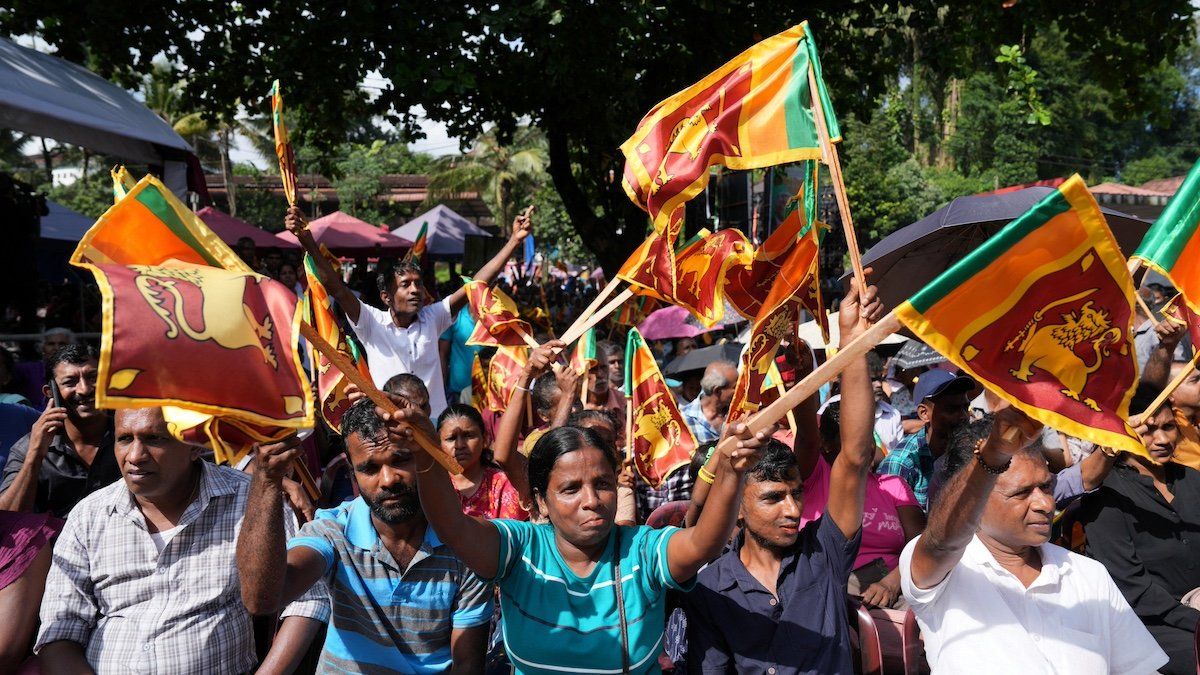As the island nation attempts to crawl its way out of a crippling economic crisis, Sri Lanka’s leading presidential candidates are promising a fairer shake for ordinary families — but will voters demand an upheaval of the entrenched aristocracy? The country heads to the polls on Saturday, Sept. 21.
Sajith Premadasa, leader of the main opposition United People’s Power party and son of the country’s third president, says that he willrenegotiate the country’s International Monetary Fund deal to shift more of the burden onto wealthy citizens if he wins. Years ofeconomic mismanagement led to food, fuel, and medicine shortages and mass protests, with then-President Gotabaya Rajapaksa and his brother (then-Prime Minister) Mahinda Rajapaksa fleeing the country in 2022. Mahinda Rajapaksa’s son Namal is also running for president today.
Rajapaksa’s close political ally Ranil Wickremesinghe has been running the country ever since and negotiated a bailout with the IMF that included fiscal reforms and tax increases. Inflation has fallen from 70% in 2022 to 0.5% last month, and the currency is gaining strength as foreign reserves increase. Whether voters are feeling those improvements in their daily lives will determine whether he stays in power.
Sri Lanka’s 1983-2009 civil war hangs heavily over the election as well. Premadasa has reached out to the minority Tamil community, who make up about 11% of the population overall but predominate in the north and east. The Liberation Tigers of Tamil Eelam fought for independence in those regions after a series of vicious anti-Tamil pogroms between 1956 and 1983, and atrocity after atrocity by both sides have deeply scarred the country.
Estimates of the death toll run over 200,000 people, not to mention hundreds of thousands more displaced, and thousands disappeared, tortured, and executed without a trace. If Tamil voters believe in Premadasa’s promises of devolution of power, they could tip the election in his favor — but with so much blood spilt, it will be a hard sell.
We also have our eye on
Anura Kumara Dissanayake, who alone among the major candidates has no ties to the island’s elite families. He rose from humble roots to lead the National People’s Power coalition and is
also promising to renegotiate the IMF deal and tackle pervasive corruption. However, he is not free of the taint of war: He is the leader of the Janatha Vimukthi Peramuna, a communist party behind the 1987-1989 uprising that killed at least 60,000 people.
